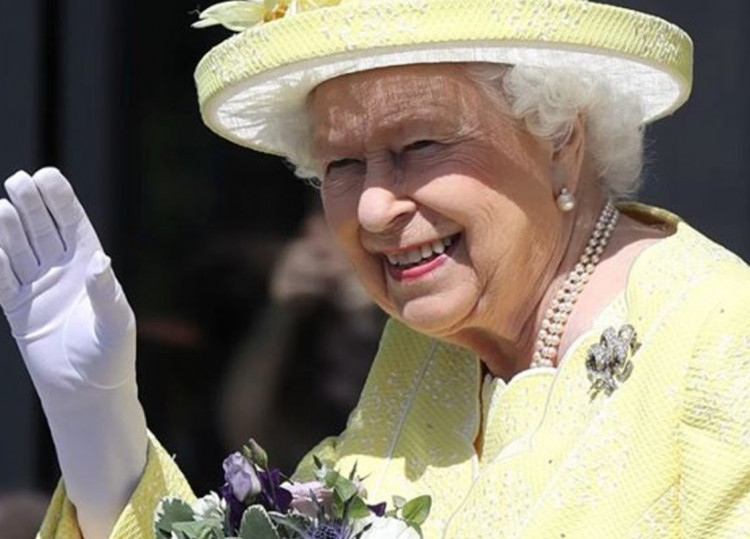Queen Elizabeth and the late Margaret Thatcher were said to have had a complicated relationship, which had bordered on the 'icy' for a time and eventually to one of mutual respect.
The two women are considered to be among the most influential female figures in modern times, but they supposedly did not see eye to eye on certain matters of policy, such as the apartheid policy of South Africa and the proposed sanctions against the member nation.
Lady Thatcher had not agreed to impose the vigorous sanctions against the apartheid rule. In a report by the Sunday Times during the controversy, the Queen was supposedly troubled with the Prime Minister's position on the issue, and this was according to the press secretary of the Queen at the time, Michael Shea. This was later denied by the Palace.
But this said disparity in their stand on issues---of which this is only one example---was explained in the differences of their positions. While the Queen is the unifying figure of the United Kingdom and other Commonwealth realms, as its symbol, she looked at member nations as freely associating entities composing a family. But Thatcher's approach had been more head-on and less about diplomacy.
And although it was never confirmed---because of the Queen's (as well as any other Royal's) position on political matters which precludes them from taking any active role in such issues---a whisper of a rumor had gotten around that the Queen was also not in agreement with Thatcher in how the unions were treated in the 80s.
Queen Elizabeth was said to have been all for a placatory approach that would lessen or avoid conflict at the time of the miner's strike in 1984 to 1985. However, Thatcher was not the "Iron Lady" for nothing. Her policies, which were then known as "Thatcherism," were implemented with uncompromising politics and leadership.
Another possible explanation for the coolness of the relationship between the two leaders was their dissimilar backgrounds. While the Queen had to maintain certain impartiality in her role as a constitutional monarch, her status and the power derived from it had been a given. It was not something she had to work for or aspire to.
On the other hand, Thatcher had to fight tooth and nail, so to speak, to arrive where she was at the top of her Conservative Party and became the first woman to become such a leader in the UK. She became as well the first ever woman Prime Minister of Great Britain and the UK. She was a suburban type though, a working woman and a professional.
While the Queen thrived in the outdoor setting, then Prime Minster Thatcher had liked being indoors. But there was one thing though about the latter's behavior which had proved irksome to the Queen.
It had been a source of dread and alarm to her to be seen as being foolish by the Queen. She had overwhelming respect for Queen Elizabeth, but when a circumstance would present itself as a possibility for looking silly in front of her, she would appear unwilling to participate.
For instance, during those times when the Thatchers would be over at Balmoral, the Queen would enjoin then-Prime Minister to participate in the game of charades. Her unwillingness to play may have been taken as a cold or unfeeling reaction.
But a lot of the uneasiness between them may also be explained by Thatcher's reverential manner when with the Queen. It was perceived that the sovereign had not known what to make of the Prime Minister's greatly kowtowing manner of sinking to floor level when making her curtsey.
The Queen and the Prime Minister had been more or less the same age, but no two leaders could be more different. They were poles apart in terms of personalities, too, which may have accounted for their somewhat stilted relationship.
This being said, some former aides of the late Prime Minister Thatcher maintain that the relationship of the two strong women was not as lousy as it was made out to be, especially not like that which was often depicted on stage as a caricature of their weekly meetings.
Regarding their weekly meetings, Thatcher was said to have unswervingly arrived fifteen minutes ahead of time for every week that she was to meet with the Queen. The Queen proceeded to let her wait the fifteen minutes each time before seeing her.
They might have rubbed each other the wrong way, but Tory Ministers at the time thought that the Queen had later appreciated what her Prime Minister had achieved after having served the longest among all her Prime Ministers.
And when Thatcher's political party disposed of her as Prime Minister in 1990, and her career ended, the Queen conferred on Thatcher the Order of the Garter as well as the Order of Merit. The royal even chose to be present at Thatcher's 80th birthday celebration back in 2005, although she did not have to.
Worthy of note too was the fact that the Queen, who does not attend her Prime Ministers' funerals, made an exception and was present at Lady Thatcher's in 2013.
Despite their complex and troubled relationship, it was thought Queen Elizabeth, in the end, may have seen the achievements that the late Thatcher had achieved for and in the name of Britain, namely in the nation's economics as well as the UK's role in the Cold War.
For her part, Thatcher was also instrumental in making sure that the Queen's financial standing would be stable as the years went on, by passing the legislation necessary before she left her office.





